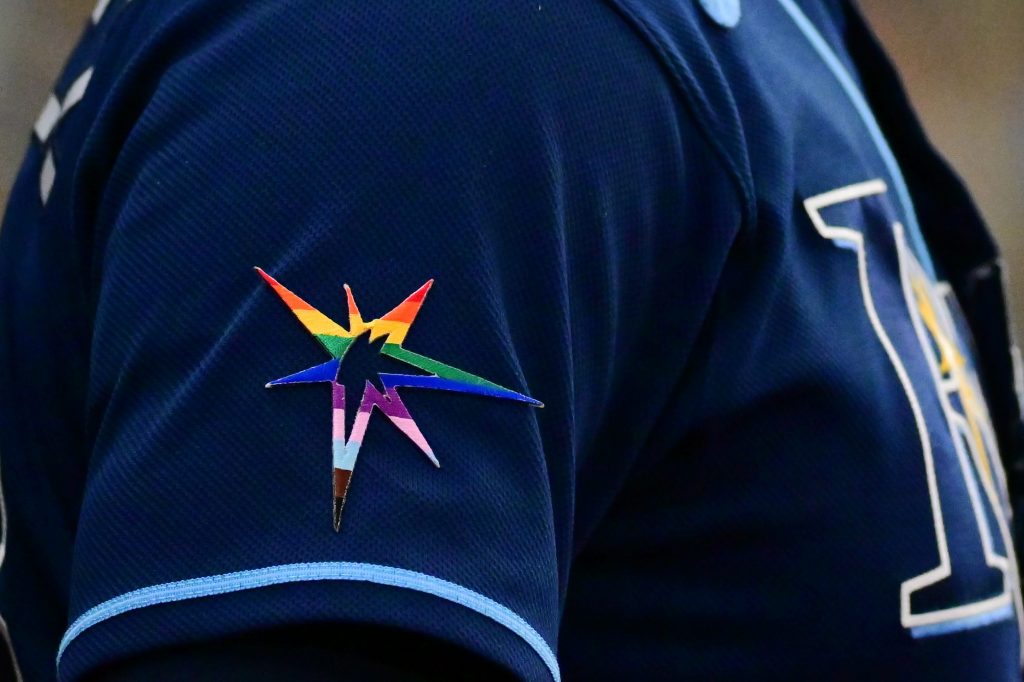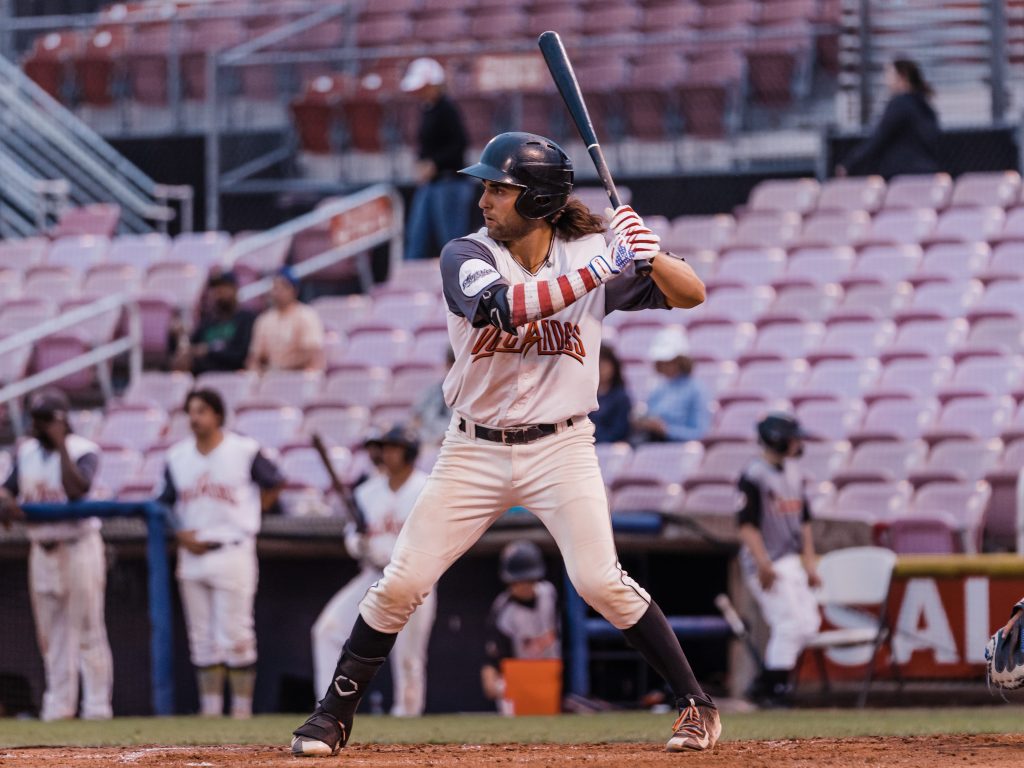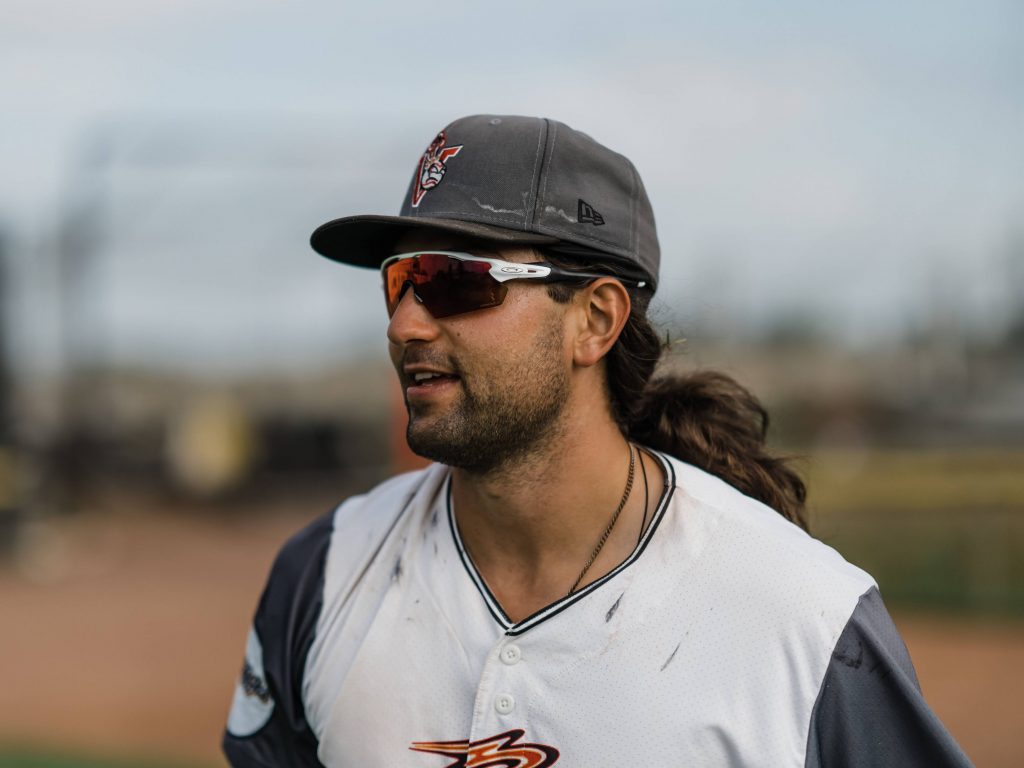- Bryan Ruby, the only openly-gay active professional baseball player, said Tampa Bay Rays players refusing to wear special uniforms on Pride Night was "sad and frustrating."
- "Discrimination and hate has a voice in baseball, and you saw it in Tampa," Ruby told Insider.
- A handful of Tampa Bay Rays players refused to wear Pride Night attire, peeling off rainbow patches.
After a handful of Tampa Bay Rays players refused to wear rainbow-clad uniforms for Pride Night on Saturday, the only openly-gay active player in professional baseball said "discrimination and hate has a voice in baseball and you saw it in Tampa."
"We have seen a lot of teams selling rainbow merchandise and doing Pride Nights, which is great, but they need to actually support their players," Bryan Ruby said of the situation in Tampa, which he called "sad and frustrating."
"We get one night at the ballpark to be ourselves all year, and it just was an indication that a lot of people still believe that we just don't belong there and that we are not welcome, and even on Pride Night, we're still second-class citizens," he said.
The Rays held their 16th annual Pride Night at Tropicana Field on Saturday.
All players were required to wear rainbow-colored logos on their Pride Night uniforms, including a rainbow "TB" on their caps and a rainbow sunburst on their right jersey sleeves, the Tampa Bay Times reported.
But a handful of players, including pitchers Jason Adam, Jalen Beeks, Brooks Raley, Jeffrey Springs, and Ryan Thompson, chose not to comply with the Pride Night attire, wearing their regular hats and peeling off the sunburst logo, the Tampa Bay Times reported.
Adam claimed their decision came down to "religious beliefs" and not wanting to encourage the "behavior" of the LGBTQ+ community, the Times reported.
Ruby wondered why the stadium's compliance officer, whose job it is to ensure players are wearing their uniforms correctly, didn't take action.
"If a player flat-out refused to wear number 42 on Jackie Robinson day, I have no doubt they would be fined," he said, noting that none of the Rays players have faced any discipline for stripping their uniforms of rainbow logos.
Ruby recognized that a majority of the Rays players were in support of Pride Night, which shows some progress in a sport where he said it is still largely taboo to be gay.

Ruby, a 26-year-old who has been playing ball since he was six, publicly came out during his 2021 stint on the Salem-Keizer Volcanoes, an Independent League team that was once an affiliate of the San Francisco Giants.
He had already been out to his friends and family for five years, but he said it took him so long to come out in baseball because he was never able to actively point to someone in Major League Baseball and see someone like him.
"I was leading a double life," he told Insider. "I was a different person at home than I was on the field."
MLB has never had an openly gay active player in its 146-year history.
He admitted he was fearful of losing his job when he first came out, though he added that he now proudly dons rainbow laces in his cleats.
"Every day at work I'd lace up my cleats and put my ball cap on and be completely in the closet, and finally I just got tired of it. I didn't feel any shame anymore about who I was, and I was proud of who I was," he added.
Ruby has also co-founded Proud To Be In Baseball, which launched on National Coming Out Day in 2021, alongside Michael Holland and Sam Culwell — two gay baseball players that reached out to Ruby in the wake of his coming out.
The nonprofit's goal is to "advocate for the next generation of LGBTQ people in baseball, lead with love, and provide resources for baseball players."
"No one is really speaking up for LGBTQ people in baseball, and we started doing that," Ruby said, noting that there has already been much interest from players — and even a few Major League teams — about working together to promote inclusivity.

Ruby said he's taken time away from baseball to focus on the nonprofit and Pride month, but added he'll be back on the diamond again later this summer. Ruby said he hopes the charity will be obsolete soon and that there'll be enough support for LGTBQ players that they no longer need a voice advocating for them.
He said he hopes the situation in Tampa doesn't deter other teams from wearing rainbow logos.
He hopes teams will take a step further to "think more carefully about what they can actually do to support the gay baseball players that they have in their organizations that aren't comfortable enough yet to reveal who they are."
"Who you date has nothing to do with if you can hit a 95 mph fastball," Ruby said.
